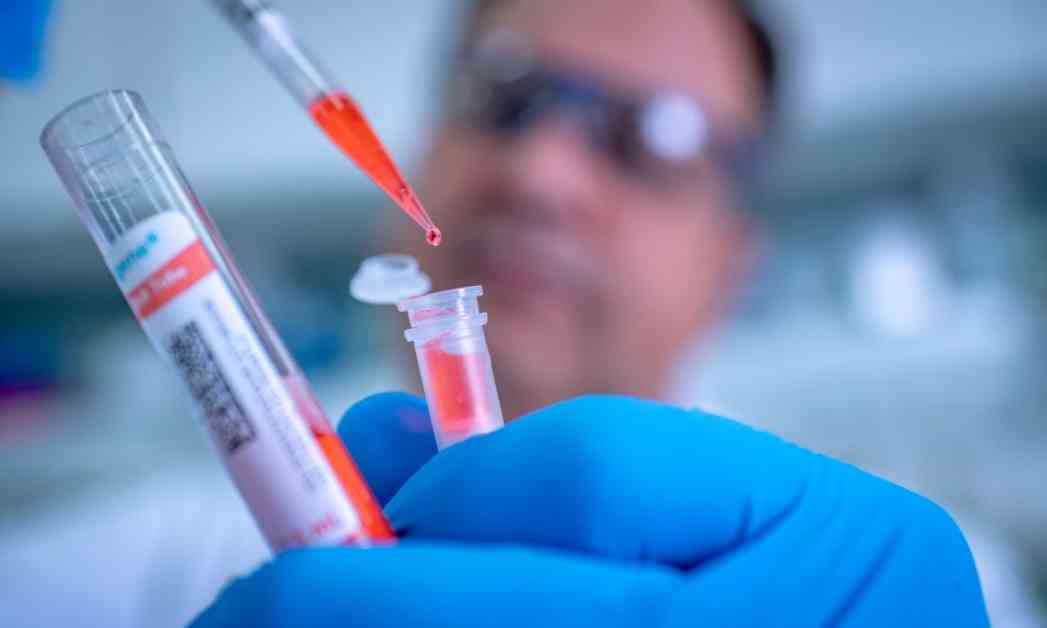Biotechnology has the potential to revolutionize not only cancer treatment but also ocean conservation. The advancements in this field are truly remarkable and have the power to address some of the most pressing challenges facing humanity today. From curing diseases to preserving our environment, biotech is paving the way for a brighter and more sustainable future.
### The Power of Biotech in Healthcare
When we think of biotechnology, the first thing that often comes to mind is healthcare and the development of new drug therapies. While this is indeed a significant focus of the industry, the impact of biotech goes far beyond just treating illnesses. Biotech companies have already made incredible strides in finding cures for various diseases, offering hope to millions of patients worldwide.
One of the most promising areas of biotech is cancer treatment. With innovative therapies like immunotherapy and targeted therapies, researchers are finding new ways to combat this deadly disease. These treatments not only improve survival rates but also enhance the quality of life for cancer patients. Additionally, advancements in gene editing technology, such as CRISPR, are opening up new possibilities for personalized medicine and gene therapy.
In addition to cancer, biotech is also making significant progress in addressing other health concerns, such as dementia, mental health conditions like depression, and the aging process. The field of longevity research is particularly exciting, as scientists explore ways to extend human lifespan and improve overall health and well-being. With biotech, living longer and healthier lives may soon become a reality for many individuals.
### Biotech and Environmental Conservation
Beyond healthcare, biotechnology has the potential to play a crucial role in environmental conservation. With the increasing threats of climate change, pollution, and habitat destruction, finding sustainable solutions to protect our planet is more important than ever. Biotech offers innovative approaches to address these challenges and promote a healthier environment for future generations.
One of the key areas where biotech can make a difference is in cleaning up our oceans. Marine pollution, including plastic waste and chemical contaminants, poses a significant threat to marine life and ecosystems. Biotechnologists are developing biodegradable materials, biofilters, and other technologies to remove pollutants from the ocean and restore its health. By harnessing the power of biotech, we can work towards a cleaner and more sustainable marine environment.
Biotech also has the potential to revolutionize agriculture and food production. With the world’s population expected to reach 9 billion by 2050, ensuring food security and sustainability is a major global challenge. Biotechnologists are developing genetically modified crops, biopesticides, and sustainable farming practices to increase crop yields, reduce environmental impact, and improve food quality. By combining biotech with traditional farming methods, we can create a more resilient and efficient agricultural system.
### The Future of Biotech: Opportunities and Challenges
As we look towards the future of biotechnology, it is essential to consider the opportunities and challenges that lie ahead. While biotech holds tremendous promise for improving human health, environmental conservation, and food security, there are also ethical, regulatory, and social implications that must be addressed.
One of the key opportunities of biotech is its potential for personalized medicine and precision healthcare. By analyzing an individual’s genetic makeup, lifestyle factors, and environmental influences, healthcare providers can tailor treatments to meet each patient’s specific needs. This approach not only improves treatment outcomes but also reduces healthcare costs and minimizes side effects.
However, the widespread adoption of biotech also raises concerns about data privacy, genetic discrimination, and access to healthcare services. As biotechnologies become more advanced and widespread, it is crucial to establish clear ethical guidelines and regulations to protect individuals’ rights and ensure equitable access to healthcare for all.
### Conclusion
In conclusion, biotechnology is a transformative and powerful tool that has the potential to revolutionize cancer treatment, environmental conservation, and many other aspects of our lives. By leveraging the capabilities of biotech, we can address some of the most pressing challenges facing humanity and create a more sustainable and prosperous future for all. As we continue to explore the possibilities of biotechnology, it is essential to remain vigilant and proactive in addressing the ethical, regulatory, and social implications of these advancements. Together, we can harness the power of biotech to build a better world for generations to come.












